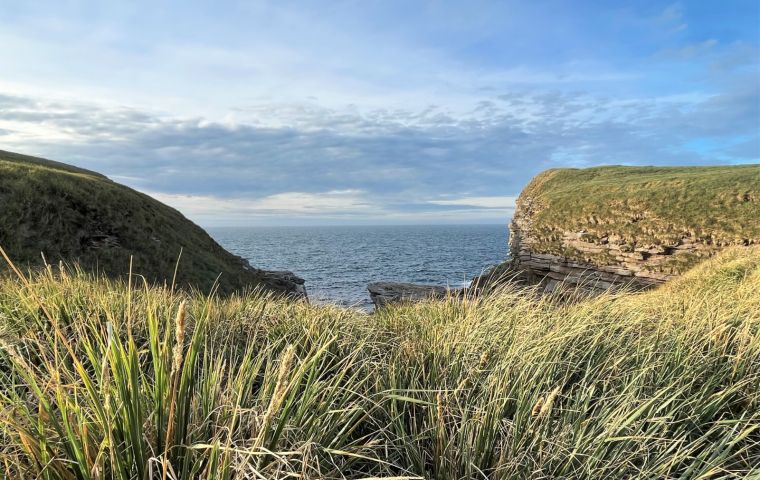MercoPress. South Atlantic News Agency
Falkland Islands peatland project aims to combat climate change
 Falklands Conservation leads a three-year initiative, funded by UK Defra, to explore the carbon sequestration potential of the Falkland Islands' peatland habitats.
Falklands Conservation leads a three-year initiative, funded by UK Defra, to explore the carbon sequestration potential of the Falkland Islands' peatland habitats.The Falkland Islands are set to embark on a comprehensive study to assess the greenhouse gas emissions from their vast peatland habitats, investigating their potential for carbon sequestration and offsetting. This groundbreaking project, titled “Improving Falkland Peatland GHG Data: Understanding Carbon Sequestration and Offsetting Feasibility,” aims to not only address environmental concerns but also lay the groundwork for future economic opportunities in the rural community.
Falklands Conservation, a leading organization dedicated to preserving the island's unique ecosystems, is spearheading this initiative, with funding provided by the UK Department for Environment, Food & Rural Affairs (Defra). Ben Taylor, the Project Lead, has been seconded into Falklands Conservation by the RSK Group to oversee the project's three-year duration.
Ben Taylor emphasized the collaborative nature of the project, stating, “The project will work in partnership with the community and key organizations, including the Falkland Islands Government, the South Atlantic Environmental Research Institute, the UK Centre for Ecology and Hydrology, and the British Antarctic Survey.”
This ambitious project was introduced during the annual “Farmers' Week” event, a crucial gathering for the Falkland Islands community. It highlighted the pressing challenges posed by climate change and the need for practical, sustainable solutions to protect both the environment and the livelihoods of those who depend on it.
The study will focus on peatland soils and their habitats, with particular attention to tussac and white grass. Various data collection methods will be employed, ranging from peat core sampling to measuring greenhouse gas emissions using flux chambers and towers. These study sites will span diverse habitat conditions and areas under varying environmental pressures, providing valuable emissions data to assess the potential benefits of conservation intervention.

Ben Taylor, the Project Lead
One significant aspect of the project is the engagement of landowners, managers, and land users, as their knowledge will play a pivotal role in shaping the feasibility of carbon offsetting opportunities in the Falklands. If the project indicates that offsets are viable, it will pave the way for the development of a Falkland-Islands-specific carbon code for peatlands, ensuring the authenticity of carbon offset projects and avoiding “greenwashing.”
Moreover, the measurements of greenhouse gas emissions from the Falkland Islands' extensive peatland habitats will contribute to the national greenhouse gas budgets, enhancing the understanding of their environmental impact and facilitating informed decision-making.
In conclusion, Ben Taylor stressed the importance of conservation, stating, “The preservation of the remaining areas of habitat in good condition and reversing existing degradation are sound conservation moves, affording benefits now and into the future for the Falkland Islands.” He expressed hope that the project would create opportunities for a diversified rural income that would benefit both the socio-economic landscape and the natural environment.
For more information about RSK and its commitment to sustainable solutions, please visit www.rskgroup.com.
RSK is a global leader in delivering sustainable solutions across various sectors, certified to international standards for quality, environmental management, and health and safety management.




Top Comments
Disclaimer & comment rulesCommenting for this story is now closed.
If you have a Facebook account, become a fan and comment on our Facebook Page!